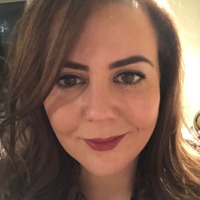
Rachel Spiers
Senior Epidemiologist at Public Health Agency, Northern Ireland
This role can be very male-dominated, especially if you want to move into statistical analysis and coding using R. Do not let it put you off. Don't be afraid of taking on a scientific subject just because you're friends aren't into it.
About Rachel...
Who am I?
"Working in healthcare-associated infection can be difficult and quite political. Doctors and nurses are providing the best care they can but unfortunately, people can still become ill as a result of being in a hospital. I need to be sensitive in delivering performance updates to hospital staff and understand the various pressures that the service is under. I need to work closely with other people in the organisation to understand how our information can be used to their benefit. I need to be confident in communicating a scientific message to not only healthcare professionals, but also members of the public to reduce the risk of contracting an infection, which can be done through information campaigns. I also lead a small team of scientists and information staff. To be a manager you need to be a good people person and understand an individual's way of working in order to get the best out of them. All of this uses the people skills in Communicator, Campaigner and Coach, so my personality traits do suit the job I am in. "
What do I do?
"As a senior Epidemiologist for healthcare-associated infections in Northern Ireland, I am responsible for leading a team on analysing data and making recommendations relating to infection control in healthcare settings. My role involves designing data collection tools, performing statistical analysis and presenting results to a range of people including doctors, nurses, hospital managers and other healthcare scientists. For example, my team monitors the number of E. coli bloodstream infections that occur in a hospital setting, so we look at the various risk factors that might contribute to this including the use of medical equipment and the overuse of antibiotics. We can then make predictions based on these data and this can inform planning for senior healthcare managers. I can also be involved in managing outbreak situations across a variety of settings including flu and gastrointestinal outbreaks. I love being able to showcase my teams work at conferences (this can involve travelling across Europe). I love being able to work on many projects at the same time as this makes every day different. There are a number of fellowship programmes and opportunities to progress to higher grades. Due to the nature of my work, my skills are extremely transferable and can be useful outside the healthcare sector."
How did I get here?
"Our head of service (and my manager) has been a trailblazer for making epidemiology a professional role within the health service. She has helped develop our team massively and encourages personal development."
The life I live
"I'm quite girly - I hate to admit it but I love to shop. I love visiting new places and try to visit at least one or two new cities every year that is not a tourist hot spot. This year I went to Seattle and took a road trip to Denver, Colorado."
My typical day
"A typical day starts off with attending the morning briefing to check what the latest threats are in terms of protecting the public's health, which might include water alerts, environmental exposures or disease outbreaks. I might also meet colleagues from Health Trusts to discuss ongoing improvement work, undertake statistical analyses of data and produce performance reports. I may also be a guest speaker for postgraduate courses and teach epidemiological methods or outbreak management. "
My qualifications
"Secondary education (GCSE/O-Levels) Post secondary education (College, A-levels, NVQ3 or equivalent) A Level Biology, Chemistry, Geology, Spanish Undergraduate degree (BSc, BA, etc.)B Sc(Hons) Tropical Disease Biology 2.1 Post-graduate degree (MSc, MA, etc.) MSc Public Health "
Rachel's Photos




